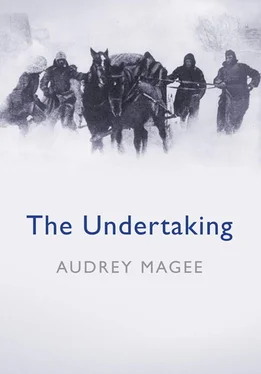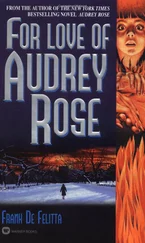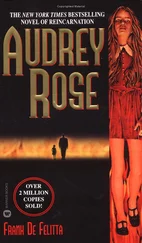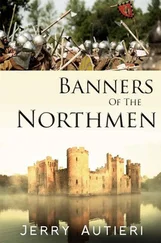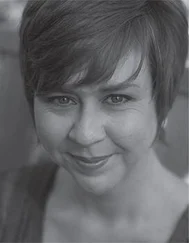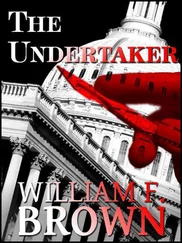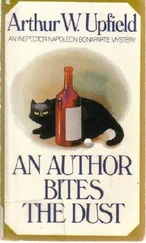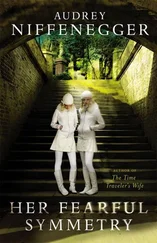‘I was busy with my wife.’
‘You did promise,’ said Faustmann.
‘I know.’
‘He thinks she’s dying,’ said Weiss.
‘I only saw my own mother for a couple of hours.’
‘She’s not dying.’
‘Jesus Christ, I just didn’t go home much. That’s all there is to it.’
‘But you could have,’ said Faustmann. ‘Even for a day.’
‘I didn’t have a day to spare.’
‘An afternoon, then,’ said Weiss. ‘You could have taken your wife, just to check on everyone.’
‘I took her for one afternoon. That’s all the time there was.’
‘You had three weeks!’
‘It was busy.’
‘My parents were looking forward to seeing you,’ said Weiss.
‘I barely saw my own, Weiss. Anyway, it was my leave. Kraft should have organized his own.’
‘Like you did?’ said Faustmann.
‘Yes, Faustmann. Like I did.’
Faber finished his cigarette, dropped it to the tractor floor and ground it into the metal with the toe of his boot. He lit another.
‘They must be disappointed,’ said Weiss.
‘Who?’
‘Your parents. Your father, especially. His teacher son.’
‘Damn it, Weiss, leave me alone. I’ve already done my penance.’
‘What do you mean?’
‘I never collected my mother’s food parcel. I was bloody starving on the train.’
‘Nothing from your wife?’ said Faustmann.
‘Scraps from a mother-in-law who has a son of her own.’
Weiss laughed.
‘Serves you right for putting your dick first.’
‘Let’s hope she was worth it,’ said Faustmann.
‘She’s much more beautiful than her photograph. The one you saw.’
‘I can’t remember it,’ said Weiss.
‘She’ll send another. I’ll show you then.’
They fell silent and stared west, at the sun sinking into the horizon. Weiss shivered.
‘It’s cold,’ he said. ‘We should go back.’
‘What about the shower?’ said Faber.
‘Fuck the shower. We’re moving out in a couple of days, anyway.’
‘How do you know?’
‘That’s the talk.’
‘Have you reported to Kraus yet?’ said Faustmann.
‘No.’
‘You should.’
He found Kraus cleaning shoes in the doorway of the house he had taken as his own. Faber saluted.
‘Ah, the honeymooner is back.’
‘Yes, Sergeant.’
‘You were a long time away. Longer than expected. How did you manage that?’
‘My father-in-law has connections, Sir.’
‘I see. Well, you’re back with us now, Faber. Eat and rest.
We’ll be moving out in a couple of days.’
‘How much longer will it take, Sir?’
‘What?’
‘The war?’
‘A week? A year? Ask your father-in-law.’
‘He says Christmas.’
‘Go and eat, Faber.’
He joined the line behind Gunkel, a butcher from Darmstadt, and Fuchs, the oldest among them and once a pupil of Faber’s father.
‘I don’t smell much fat,’ said Gunkel. ‘They must be pleased with us.’
‘We’re heroes,’ said Faber.
‘They’re feeding us to be ready for a Russian winter,’ said Fuchs.
‘But it’s almost over,’ said Faber.
‘Things are moving too slowly around Moscow,’ said Fuchs.
‘Berlin thinks that it’s almost all over,’ said Faber.
‘The boys up north don’t see it like that.’
‘You’re such a bloody pessimist, Fuchs.’
Stockhoff, the cook, dug his ladle deep into the pot and drew up a large portion of meaty stew. A second soldier handed out two pieces of bread, both buttered, both fresh. Faber sat beside Weiss. He gestured at the butter, and at the sauce and meat.
‘Maybe Fuchs is right.’
‘He’s usually reliable. The radio operators talk to him.’
‘But I promised Katharina I would be back by Christmas.’
‘You promised Kraft you’d visit his mother.’
‘This is different.’
‘And what happens then?’
‘When?’
‘When this is over? When you go back?’
‘Her father said he would find me a job after the war. A good one.’
‘Doing what?’
‘Teaching, training.’
‘In Berlin?’
‘Yes. And around Germany. Around our new empire.’
‘I thought you’d be in Darmstadt all your life. Continue the great Faber teaching tradition.’
‘Things change.’
‘So I gather.’
Faber chewed his meat.
‘It’s good. Better than anything I had in Berlin.’
‘You should have stayed here then.’
‘Any news on winter clothing?’
‘Who knows? Kraus said soon.’
‘He said that before I left.’
Faber drank from his water canister, sluicing down the meat stuck in his teeth.
‘Is Fuchs still coughing?’ he said.
‘Yep.’
‘I hate that noise. Every bloody morning.’
‘He can’t help it.’
‘How has Faustmann been?’
‘Fine. Same as ever.’
‘Are you sure?’
‘What do you mean?’
‘Can we trust him?’
‘Faustmann? What are you on about?’
‘Well, he speaks Russian.’
‘Jesus, Faber, I speak French.’
‘That’s different. We’re at war in Russia and he speaks the language of our enemy.’
‘You never gave a shit when I spoke French in Belgium.’
‘That’s different.’
‘Only if you want it to be.’
‘It’s not that simple.’
‘Make it as complicated as you like, Faber. I’m going to get more food.’
The following morning, they wandered by the river and through Kiev, ending up at the market, the soldiers picking over jewellery, picture frames, coats, scarves and ties, the peasant sellers dressed in high-heeled shoes, fur stoles and long white leather boots. One woman used a silver clutch bag as her till.
‘Where did it all come from?’ said Faber.
‘It’s Jewish,’ said Weiss. ‘They don’t need it any more.’
‘They’ll take whatever you offer,’ said Faustmann. ‘It’s all an unexpected harvest for them.’
Faber bought a silver bracelet for Katharina, and a silk scarf with swirls of a green that matched her eyes. He bought some apples and pears too, and some coarse vodka and bread, then went down to the river with Weiss, Kraft and Faustmann. It was midday and the sun was warm. They sat on a beach and picnicked close to a bridge bent and twisted by the retreating Russians. Faber stared at the expanse of the river.
‘Is there any end to this country?’
‘We’re only on the edge of it,’ said Faustmann.
‘My wife’s father had some notion that I should move here after the war.’
‘What for?’ said Kraft.
‘To farm and grow food for Germany.’
‘There’ll be empty plates in Berlin if they send you,’ said Weiss.
They laughed and lay down, relishing the warmth until the sun gave way to the late autumn winds.
At five, Kraus bellowed them awake.
‘Up! Out! Let’s go! There’s a war to win.’
Faber groaned.
‘I thought we had one more day.’
‘Change of plan, Faber. Up.’
‘I wanted to write to my wife today.’
‘You should have written yesterday, Faber. Up.’
He rolled onto his hip, sat up, scratched under each armpit and pulled on the rest of his clothes. He packed his rucksack, ate hot porridge, drank cold coffee and fell into line alongside buildings still in darkness, the blue, grey and pale yellow of their stone yet to be picked out by the day’s light. Kraus ran up and down, counting, checking and shouting.
‘Right men, march.’
Faber quietly swore at the sergeant. He didn’t want to go. Nor did he want to stay.
‘So where are we off to?’
‘East,’ said Weiss.
‘I gathered that, Weiss.’
Читать дальше
